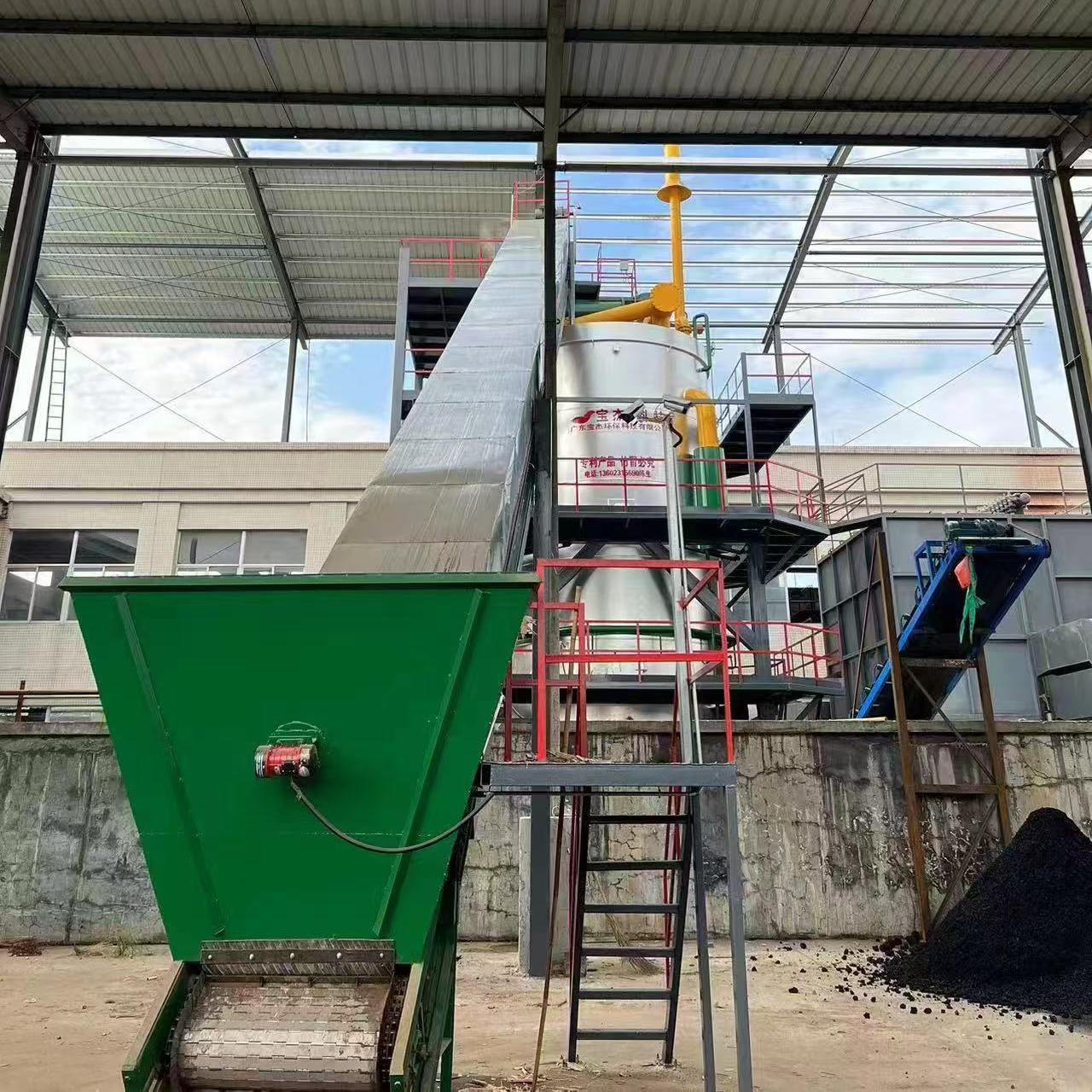R&D and manufacture of biomass gasification equipment, environmental protection equipment, boiler equipment, investment in heating (steam) energy operation and management.
Tel:+86 0769-82928980
E-mail:[email protected]
Web Menu
Product Search
Exit Menu
Industry News
Biomass gasification technology: the future of clean energy
With the continuous growth of global energy demand and the increasingly severe environmental problems, it has become a top priority to find sustainable and environmentally friendly energy solutions. In this context, biomass gasification technology (Biomass Gasifier) as a clean and efficient way of energy conversion is receiving more and more attention.
The core equipment of biomass gasification is the gasifier, which achieves efficient conversion of biomass by controlling temperature, pressure and oxygen supply. According to the design and operation mode of the gasifier, biomass gasification can be divided into fixed bed gasification, fluidized bed gasification and rotating bed gasification.
The raw materials for biomass gasification come from organic waste in nature, such as agricultural residues, forestry waste and urban garbage. These resources are renewable and can significantly reduce dependence on non-renewable resources compared with fossil fuels.
Low carbon emissions
The amount of carbon dioxide produced during biomass gasification is basically the same as the amount of carbon dioxide absorbed during the growth of its raw materials, so it is considered a "carbon neutral" technology. In addition, compared with direct combustion, gasification technology can significantly reduce the emission of harmful gases (such as sulfur dioxide and nitrogen oxides).
Energy diversification
Synthesis gas can be used directly as a fuel for power generation and heating, or it can be further processed into liquid fuels (such as methanol, ethanol) or chemicals to meet the needs of different fields. This flexibility makes biomass gasification technology have great potential in energy diversification.
Waste resource utilization
Biomass gasification can not only process a large amount of agricultural and industrial waste, but also convert it into high-value-added energy products, realizing the resource utilization of waste and helping to improve environmental quality.
Economic benefits
Compared with traditional fossil fuels, the raw material cost of biomass gasification is low and widely distributed, which is particularly suitable for promotion and use in rural areas and developing countries. At the same time, this technology can also create employment opportunities and promote local economic development.

Application areas of biomass gasification
Distributed energy system
In remote areas or places where power grid coverage is insufficient, biomass gasification technology can provide electricity and heat support for small communities. For example, many rural areas use local agricultural and forestry waste to build small gasification power stations, which not only solves the problem of energy shortage, but also reduces the environmental pollution caused by waste accumulation.
Industrial heating and power generation
Biomass gasification technology is widely used in the industrial field, especially in industries that require a lot of heat energy (such as food processing, papermaking and textiles). In addition, large-scale gasification units can also be combined with gas turbines for centralized power generation.
Transportation fuel
After further processing, the syngas can be converted into biodiesel, ethanol or other liquid fuels to replace traditional gasoline and diesel. This green fuel can not only reduce greenhouse gas emissions, but also relieve the pressure of oil resource depletion.
Chemical production
The syngas generated by biomass gasification is an important chemical raw material, which can be used to produce basic chemicals such as methanol, ammonia, formaldehyde, etc., providing a sustainable source of raw materials for the chemical industry.
Waste treatment and energy recovery
Municipal domestic waste contains a large amount of organic components. Through biomass gasification technology, these wastes can be converted into energy, while reducing the burden on landfills, achieving waste reduction and resource utilization.
Challenges and prospects of biomass gasification
Although biomass gasification technology has many advantages, it still faces some challenges in practical applications. For example, the cost of raw material collection and pretreatment is high, the gasification efficiency is greatly affected by the type and humidity of raw materials, and the equipment investment and technical threshold are high. However, with the advancement of technology and policy support, these problems are gradually being solved.
In the future, biomass gasification technology is expected to become an important part of the global clean energy system. Governments and enterprises should increase investment in the research and development of related technologies, improve the layout of the industrial chain, and formulate incentive policies to promote the commercialization and large-scale application of biomass gasification technology.
Biomass gasification technology, with its unique environmental protection and economic performance, provides human society with a new path to sustainable development. At a critical moment when the world is responding to climate change and energy crisis, this technology will undoubtedly become a shining star in the field of clean energy.
Quick Links
Products
contact Us
 Tel: +86 0769-82928980
Tel: +86 0769-82928980 Fax: [email protected]
Fax: [email protected] E-mail: [email protected]
E-mail: [email protected] Company Address: Dalang Chamber of Commerce Building, No. 288 Yinlang South Road, Dalang Town, Dongguan City 13333, China
Company Address: Dalang Chamber of Commerce Building, No. 288 Yinlang South Road, Dalang Town, Dongguan City 13333, China Factory Add:
West side of Centre Road and south side of Zhongyuan Road within Hongcaoyuan, Hongcao Town, Shanwei Urban District
Factory Add:
West side of Centre Road and south side of Zhongyuan Road within Hongcaoyuan, Hongcao Town, Shanwei Urban District
Copyright© 2022 Guangdong Bao Jie Technology Co., Ltd.All Rights Reserved.


 EN
EN 





